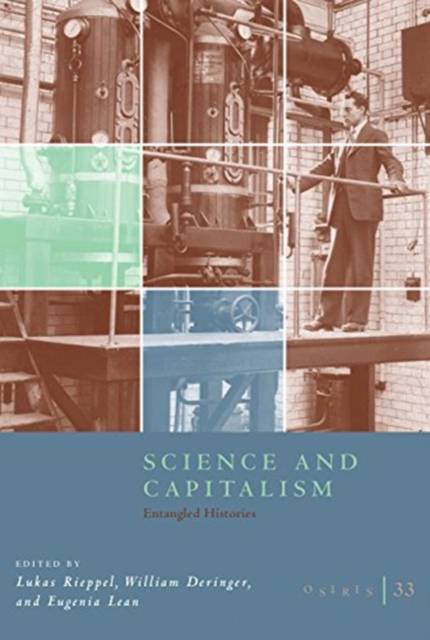
- Afhalen na 1 uur in een winkel met voorraad
- Gratis thuislevering in België vanaf € 30
- Ruim aanbod met 7 miljoen producten
- Afhalen na 1 uur in een winkel met voorraad
- Gratis thuislevering in België vanaf € 30
- Ruim aanbod met 7 miljoen producten
Zoeken
Osiris, Volume 33, Volume 33
Science and Capitalism: Entangled Histories
€ 36,45
+ 72 punten
Omschrijving
The historical relationship between science and capitalism has long stood as a central question in science studies, at least since its foundations in the 1930s. Taking inspiration from the recent surge of scholarly interest in the "history of capitalism," as well as from renewed attention to political economy by historians of science and technology, this Osiris volume revisits this classic quandary, foregrounding the entanglements between these two powerful and unruly historical forces and tracing the diverse ways they mutually shaped each other. Key attention is paid to the practices of knowledge work that enable both scientific and capitalistic action and to the diversity of global sites and circuits in which science/capitalism have been performed. The assembled papers excavate an array of tangled nodes at the science/capitalism nexus, spanning from the seventeenth century to the twenty-first, from Nevada to Central Asia to Japan, from microbiology to industrial psychology to public health.
Specificaties
Betrokkenen
- Uitgeverij:
Inhoud
- Aantal bladzijden:
- 352
- Taal:
- Engels
- Reeks:
- Reeksnummer:
- nr. 33
Eigenschappen
- Productcode (EAN):
- 9780226602325
- Verschijningsdatum:
- 21/11/2018
- Uitvoering:
- Paperback
- Formaat:
- Trade paperback (VS)
- Afmetingen:
- 170 mm x 251 mm
- Gewicht:
- 589 g

Alleen bij Standaard Boekhandel
+ 72 punten op je klantenkaart van Standaard Boekhandel
Beoordelingen
We publiceren alleen reviews die voldoen aan de voorwaarden voor reviews. Bekijk onze voorwaarden voor reviews.










